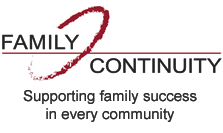Recovery Coaches provide strength-based support to individuals in active addiction or early recovery from alcohol, other drugs, codependency, or other addictive behaviors and support individuals to find ways to stop addiction. Using motivational interviewing skills, Harm Reduction model, and supporting all Pathways to Recovery with a goal of complete abstinence, however long that may take. Recovery Coaches are a vital piece of combatting our Substance Use (Opioid) epidemic we are facing. As a professional RC, I am bringing my own personal lived experience with active addiction and recovery. This is a great “ice breaker” for the relationship between the individual who is struggling and the RC. The identification helps build engagement which leads to recovery. Outreaching to those who are struggling can be difficult. They are already facing their own guilt, shame, denial, fear and the stigma from our society around addiction. Being able to relate with them in a non-judgmental manner, and show compassion and empathy, helps individuals receive the help they need.
My past and current experience with local Police Departments has significantly helped individuals in their recovery process. At FC, I work at the Blackstone Valley Connector, that partners with 5 local Police Departments; Sutton, Whitinsville, Uxbridge, Blackstone and Millville. When the Police have an interaction with an individual such as an overdose or any substance use issue, they send the referral to us, and typically I follow up within 24 hours. This shows the person struggling in active addiction or the family/ loved ones that someone cares. My role is to motivate and support them into treatment. As we know, there is no “cookie cutter” for substance use. I continue to attempt to engage with them via phone calls/ texts and encourage them to attend my weekly Recovery Support Drop-in.
I am also working on a federal grant in the Worcester Community, Access to Recovery “ATR”. Once I receive the Recovery Coach referral, I reach out to the recoveree and support them in their recovery process. These referrals are usually individuals in early recovery. Once I meet with the recoveree we work on their recovery goals and I am with them as a cheerleader and motivator for recovery. I help them remove barriers in the community, such as supporting them at court with criminal matters, DCF meetings, probate court, housing, employment, connecting them with the recovery community, how to obtain their license or get it back, etc. I was able to rebuild my own life and had to deal with a lot of the above barriers. This gives me an opportunity to lead by example and explain to the recoveree’s what my life was like almost 4 years ago and where I am now! This shows others that recovery is possible!



